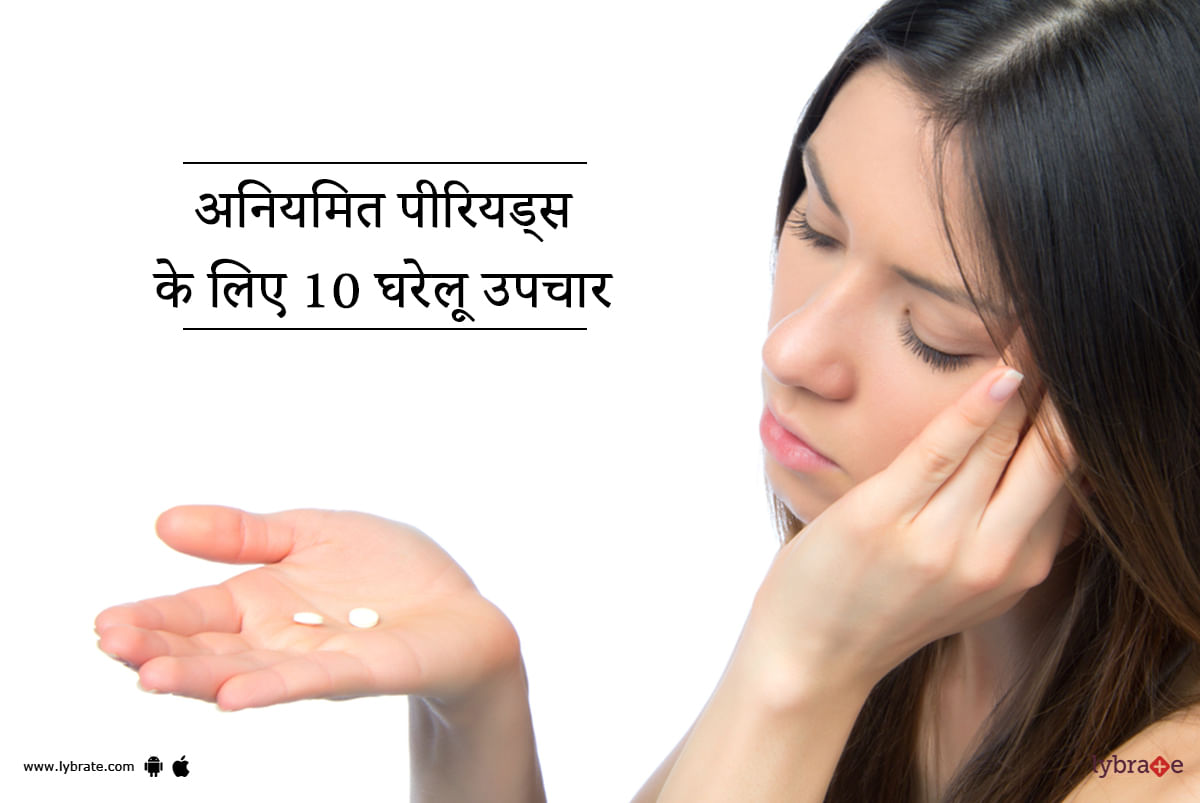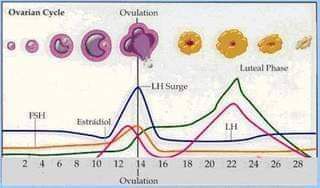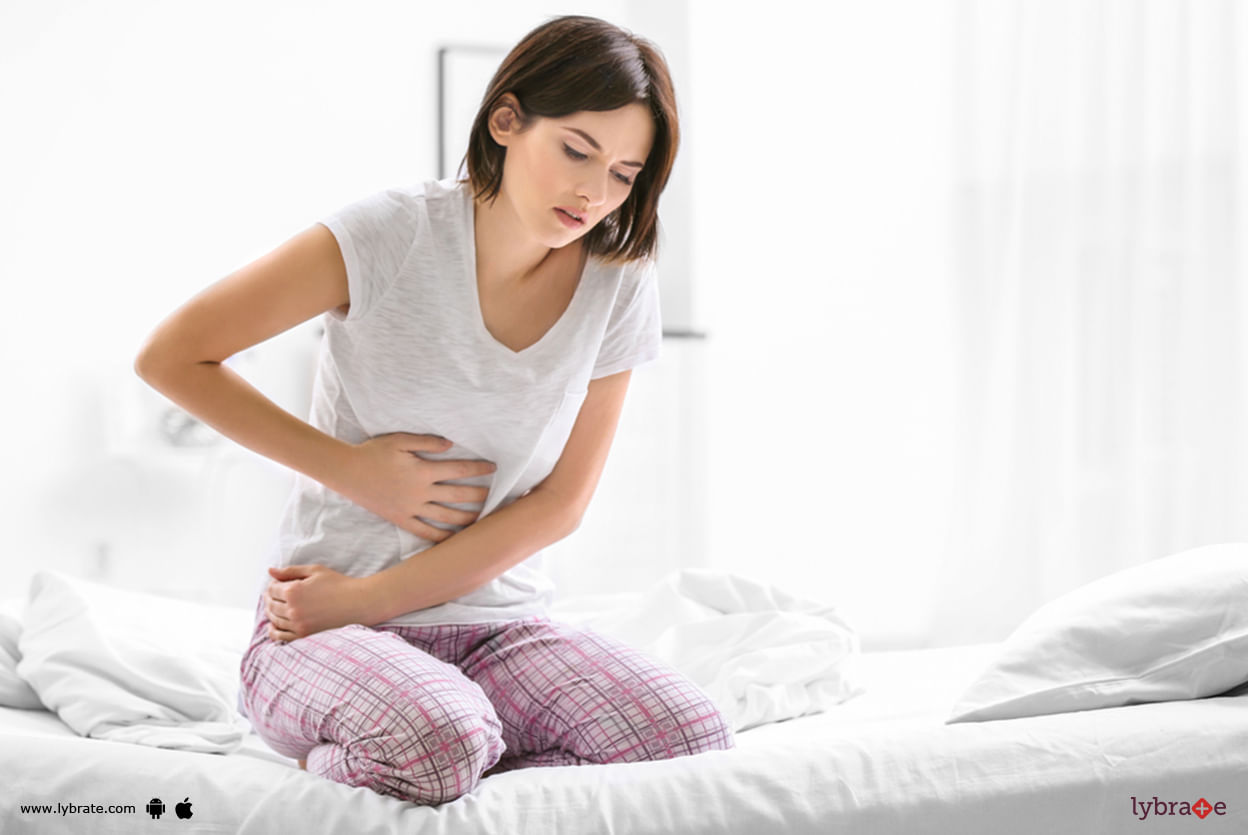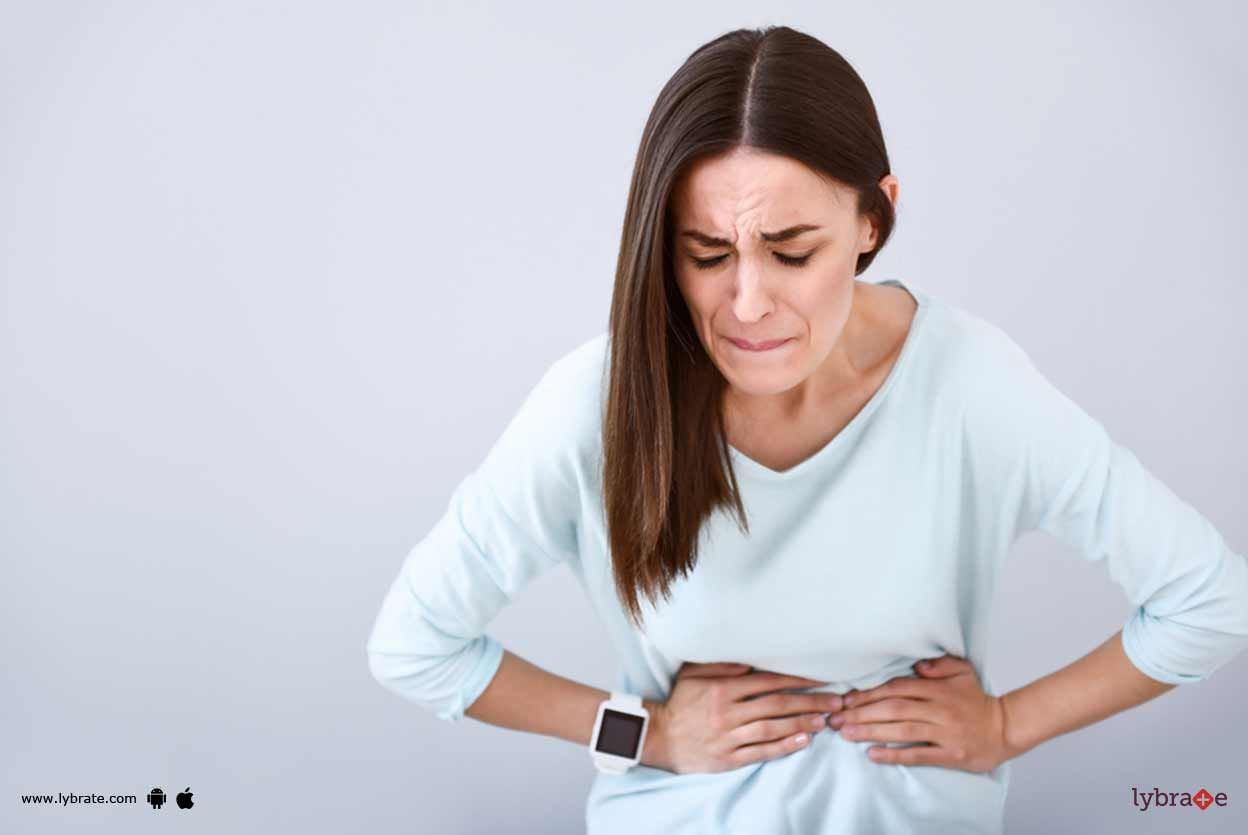Get the App
For Doctors
Login/Sign-up
About
Health Feed
Find Doctors
Health Packages
AllQ&AsTipsQuizzes
Irregular Periods Tips
Last Updated: 3 years ago• Featured Tip
Share
Bookmark
Report
Gynaecologist•Delhi
एक नियमित मासिक धर्म चक्र 28 दिनों से 35 दिनों के बाद होता है और लगभग 4-6 दिनों तक रहता है। अगर आपके पीरियड्स 35 दिनों के बाद भी शुरू नहीं होते हैं या हर बार अलग-अलग दिनों के अंतराल के साथ होते हैं तो आप उन्हें अनियमित मान सकते हैं।
अनियमित पीरियड्स के कई कारण हो सकते हैं। इनमें मुख्य रूप से हार्मोनल असंतुलन, गर्भनिरोधक गोलियों का उपयोग करना, मोटापा, जीवन शैली में परिवर्तन, गतिहीन जीवन शैली और अस्वास्थ्यकर भोजन की आदतें, तनाव, थायराइड ,पॉलीसिस्टिक ओवरी सिंड्रोम आदि शामिल हैं।
...more
अनियमित पीरियड्स के कई कारण हो सकते हैं। इनमें मुख्य रूप से हार्मोनल असंतुलन, गर्भनिरोधक गोलियों का उपयोग करना, मोटापा, जीवन शैली में परिवर्तन, गतिहीन जीवन शैली और अस्वास्थ्यकर भोजन की आदतें, तनाव, थायराइड ,पॉलीसिस्टिक ओवरी सिंड्रोम आदि शामिल हैं।
...more
Last Updated: 3 years ago• Featured Tip
Share
Bookmark
Report
1. Dr. Shilpa bansal agrawal
Https://www. Lybrate. Com/mumbai/doctor/dr-shilpa-bansal-agrawal-gynaecologist ;
Mbbs, md - obstetrtics & gynaecology, dnb, fellowship in infertility
17 years experience 1000 at clinic 700 online
Shilpa bansal agrawal is a prominent obstetrician and gynaecologist. She's well-versed in women's health issues, notably menstruation. She earned mbbs and md - obstetrics & gynecology from mani...more
Last Updated: 3 years ago• Featured Tip
Share
Bookmark
Report
Irregular periods are a common problem in women. There are many reasons responsible for irregular periods which may include certain hormonal or anti inflammatory medications or iud birth control. Changes in harmones such as excess production of estrogen or progestin may cause heavy bleeding and this occurs in women who have started their menstrual cycle or are approaching menopause. Also, certain diseases such as certain blood disorders, endometriosis, pelvic inflammatory dis...more
43 people found this helpful
Last Updated: 3 years ago• Featured Tip
Share
Bookmark
Report
1. Dr. Anu joseph
Https://www. Lybrate. Com/bangalore/doctor/dr-anu-joseph-gynaecologist ;
Mbbs, dnb (obstetrics and gynecology), fellowship in maternal and fetal medicine
20 years experience 600 at clinic 400 online
Dr. Anu joseph, a gynaecologist and expert in fetal medicine, should be your first choice if you're dealing with irregular periods. She is a well-known authority in the sector with more than twenty years of ex...more
70 people found this helpful
Last Updated: 3 years ago• Featured Tip
Share
Bookmark
Report
Menopause is a very important phase of a women's life but before this transition phase begins there are some events that occur before the onset of the menopause and these events are said to be premenopausal events. These events are an indication that your body has started to produce less amount of estrogen than the required amount. This diminished production of this estrogen hormone leads the women to experience irregularity in their periods, further she will notice that she ...more
615 people found this helpful
Last Updated: 4 years ago• Featured Tip
Share
Bookmark
Report
When ovulation doesn't occur, progesterone is not produced, however estrogen-induced endometrial accumulation continues indefinitely. Progesterone normally balances the effects of estrogen. As a result of this unopposed estrogen, shedding of the thickened endometrium is irregular, happening when it can no longer maintain itself. This pattern is known as estrogen breakthrough bleeding, which results in delayed and unusually heavy periods. A pattern more commonly experienced by peri-menopausal wom...more
Last Updated: 5 years ago• Featured Tip
Share
Bookmark
Report
Last Updated: 5 years ago• Featured Tip
Share
Bookmark
Report
Each woman has her own menstrual cycle pattern. Some women have almost the same menstrual cycles that begin and end almost in a synchronized manner with little problem, but some women face various difficulties in menstruation period due to major fluctuations. Although minor fluctuations usually occur but there is a medical condition called menstrual disorder which is characterized by some peculiar signs and symptoms.
The menstrual disorder is actually diagnosed when a woman is facing a probl...more
The menstrual disorder is actually diagnosed when a woman is facing a probl...more
Last Updated: 6 years ago• Featured Tip
Share
Bookmark
Report
Menstruation or a period starts during puberty, usually between the ages 10 and 16 years and continues until a woman reaches the menopausal stage, i.e. 45-55 years. Normally, a woman s menstrual cycle span is 28 days, but this varies from one individual to another. Menstrual flow might occur every 21 to 35 days and last two to seven days. For the first few years after menstruation begins, long cycles are common. However, menstrual cycles tend to shorten and become more regular as you age.
more
Last Updated: 6 years ago• Featured Tip
Share
Bookmark
Report
For some women, a period can be more than just uncomfortable. There are a number of menstrual problems that could affect women. These range from irregular periods to excessive bleeding and premenstrual syndrome. The good news is that homeopathy can be used to effectively treat these problems. Homeopathy is a holistic form of treatment that addresses the root cause of the problem instead of the symptoms. Additionally, it has negligible side effects.
Here are a few homeopathic forms of t...more
Here are a few homeopathic forms of t...more
Book appointment with top doctors for Irregular Periods treatment
View fees, clinic timings and reviews
Ask a free question
Get FREE multiple opinions from Doctors
posted anonymously


















